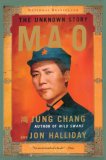Summary | Excerpt | Reviews | Beyond the book | Read-Alikes | Genres & Themes | Author Bio

In
Empress Orchid, the first of Anchee
Min's two novels about Empress Tzu Hsi the reader
meets the young girl, later to be known as Orchid,
and her impoverished mother, on their way to Beijing
to bury Orchid's recently deceased father. Once in
Beijing, Orchid learns that the young Emperor Hsien
Feng is looking for brides who, to preserve the
purity of the Imperial line, must be Manchurian,
which she is. She is chosen and exchanges a life of
poverty for the restricted life of a third-grade
concubine in the Forbidden City.
Through wily maneuvering she seduces the Emperor and
bares him his first son, who is five years old when
declared Emperor on the death of his father. To
ensure that both she and her son stay alive, Orchid,
who now takes the name Tzu Hsi (meaning "kindly and
virtuous"), forms an alliance with the dead
Emperor's first wife so that they rule as joint
regents, but Orchid must use all her skill to
counter the rivals and treachery that lie behind
every bamboo screen.
The Last Empress, which opens where
Empress Orchid ends, lacks the compelling
rags-to-riches/love story elements of Empress
Orchid and tends to read like a series of
vignettes not a continuous novel - probably the
result of trying to squeeze nearly half a century of
turbulent history into less than 300 pages. The result
is a strangely dry and emotionless novel which makes
it difficult to feel a connection with any of the
many secondary characters because their time on
stage is so short
Having said that,
Empress Orchid and The Last Empress
have much to offer. Not least of which are vivid
details of Imperial court life and an enlightening
revisionist portrait of the woman that the Western
press maligned as the "Dragon Lady". If you have
read and enjoyed Empress Orchid, then you
should certainly continue the story in The Last
Empress. If you have not read the first book it
will probably take you a few chapters to orientate
yourself. As usual, you can "test drive" Empress
Orchid and The Last Empress to decide
whether they're books for you by reading an excerpt
of both at BookBrowse.
Anchee Min was born in Shanghai in 1957
during the rule of communist leader Mao Zedong. At
the age of 17, she was sent to a labor camp near the
East China Sea, where she endured mental and
physical hardships leading to a severe spinal
cord injury. She worked for three years before
talent scouts spotted her toiling in a cotton field.
Madame Mao, preparing to take over China, was
looking for a leading actress for a propaganda film.
Min was selected for having the ideal "proletarian"
look. Mao died before the film was complete, and
Madame Mao, blamed for the disaster of the
revolution, was sentenced to death. Min was labeled
a political outcast by association. She was
disgraced, punished, and forced to perform menial
tasks in order to reform herself. In 1984, with the
help of actress Joan Chen, Min left China for
America. She spoke no English when she arrived in
Chicago, but within six months had taught herself
the language in part by watching "Sesame Street" and
"Mr. Roger's Neighborhood" on American television.
Her bestselling memoir, Red Azalea was
published in 1994. Since then she has written five
works of historical fiction: Katherine,
Becoming Madame Mao, Wild Ginger,
Empress Orchid and The Last Empress. The
books attempt to re-record histories that, in Min's
view, have been falsely written. "If my own history
is recorded falsely, how about other people?" she
asks.
![]() This review was originally published in The BookBrowse Review in May 2007, and has been updated for the
May 2008 edition.
Click here to go to this issue.
This review was originally published in The BookBrowse Review in May 2007, and has been updated for the
May 2008 edition.
Click here to go to this issue.

If you liked The Last Empress, try these:

by Lisa See
Published 2008
Steeped in traditions and ritual, this story brings to life another time and place – even the intricate realm of the afterworld, with its protocols, pathways, and stages of existence. Ultimately, Lisa See’s new novel addresses universal themes: the bonds of friendship, the power of words, and the age-old desire of women to be heard.

by Jung Chang, Jon Halliday
Published 2006
This is an entirely fresh look at Mao in both content and approach. It will astonish historians and the general reader alike.
Your guide toexceptional books
BookBrowse seeks out and recommends the best in contemporary fiction and nonfiction—books that not only engage and entertain but also deepen our understanding of ourselves and the world around us.